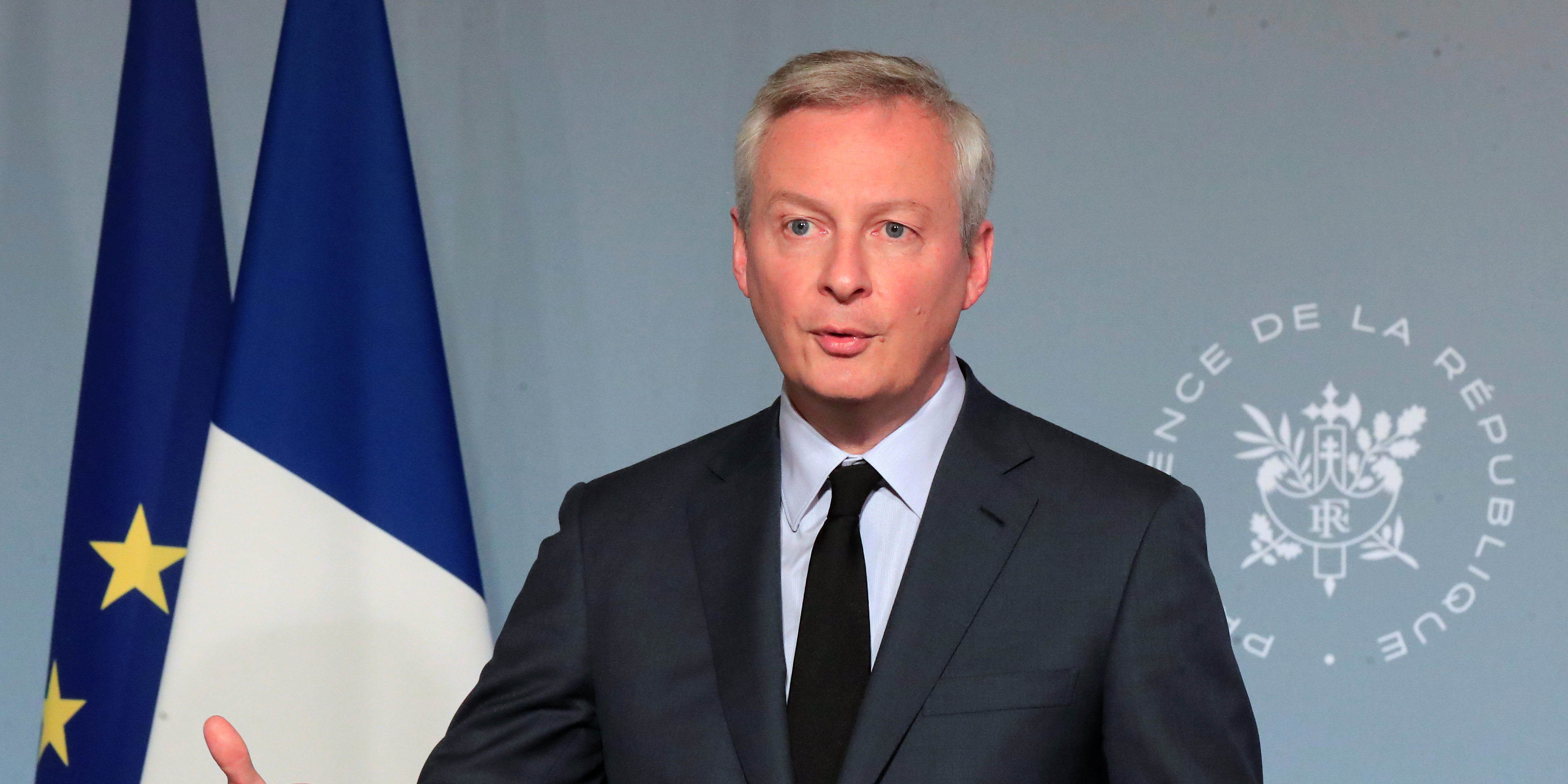- France will block firms registered in tax havens from accessing the state bailout fund.
- “If a company has its tax headquarters or subsidiaries in a tax haven, I want to say with great force, it will not be able to benefit from state financial aid,” finance minister Bruno Le Maire told the France Info radio station on Thursday.
- Last Saturday, Denmark had enforced a similar measure, following the lead of authorities in Poland in early April.
- France has allocated 110 billion euros ($108 billion) to save its businesses amid the coronavirus crisis.
- Visit Business Insider’s homepage for more stories.
France will block firms registered in offshore tax havens from claiming aid from its government coronavirus bailout, following similar moves by Denmark and Poland.
Finance Minister Bruno Le Maire announced Thursday that companies either registered, or controlling subsidiaries, in tax havens are ineligible for the 110 billion euros ($108 billion) rescue package.
“It goes without saying that if a company has its tax headquarters or subsidiaries in a tax haven, I want to say with great force, it will not be able to benefit from state financial aid,” Le Maire told the France Info radio station.
“There are rules that must be followed. If you have benefited from the state treasury, you cannot pay dividends and you cannot buy back shares,” he said.
"And if your head office is located in a tax haven, it is obvious that you cannot benefit from public support."

The announcement follows a request for an amendment to the 2020 finance bill from a group of Centrist Union group senators, led by Nathalie Goulet, on Monday.
The amendment sought to exclude "companies whose subsidiaries or establishments are established in states and non-cooperative territories" from getting aid. The amendment passed on Wednesday.
France is the third country to enforce such a measure amid the economic downturn caused by the coronavirus crisis.
On April 8, the prime minister of Poland, Mateusz Morawiecki, said that large companies wanting a chunk of his government's roughly $6 billion bailout fund must pay domestic business taxes.
"Let's end tax havens, which are the bane of modern economies," he said.
Denmark followed suit on Saturday. "Companies based on tax havens in accordance with EU guidelines cannot receive compensation," a statement from the country's finance ministry read.
Of France's 110 billion-euro package, four billion euros ($4.3 billion) have been reserved for struggling startups, while 20 billion euros ($21.7 billion) are being kept for larger firms, such as Air France.
